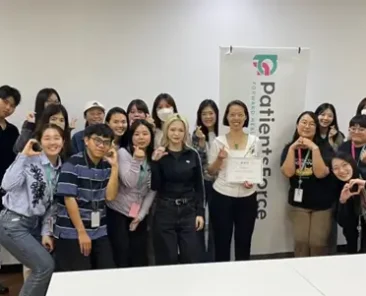A new study published in the Journal of the Canadian Medical Association (CMAJ) analyzed statistics and analysis of patient support programs (PSPs) offered by pharmaceutical companies in Canada, showing that PSPs are continuing to increase. These programs are designed to help patients address the problem of expensive out-of-pocket drugs, especially in the treatment of biologics and rare disease drugs. The study found that about 10% of prescription drugs in the Canadian market provide PSPs, and are mainly related to high-cost drugs, and their retail price is 10 to 100 Canadian dollars per unit (220~2200 NTD) of drugs, PSPs are most commonly found in expensive drugs, high-cost drugs have PSPs services, and the proportion of cheaper drugs is about eight times.
According to a study by Dr. Quinn Grundy and collaborators at the University of Toronto, a statistical analysis of the drugs on the market as of August 2022 was conducted to understand the market status of the prescription drug patient support program market. Of the 2,556 prescription drugs available in Canada, 256 (10%) were identified from the market information to offer PSPs. Nearly two-thirds of pharmaceutical companies (55, 62%) offer PSPs, and more than half of these biologics drugs provide PSPs.
The researchers noted that because their analysis relied on publicly available information, the actual number of PSPs may be underestimated, as they may have missed some very specialized, rare drug PSPs.
PSPs do not only provide financial assistance, 90% of PSPs services include a variety of care such as financial navigation and clinical case management to increase treatment adherence and patient experience. However, the study also highlights the need for greater transparency and independent evaluation of these plans based on legal and drug safety management. While PSPs are designed to support patients, many studies remain concerned that PSPs may impact prescribing practices and overall medical and drug costs.
While finance, care management support, and counseling are all valuable to patients, researchers have found duplication of services between companies that sell drugs with the same ingredients, and a lack of transparency in the operation of some programs to understand the impact of these programs. In the U.S., drug services for PSPs are more widely available in high-priced and biologic drugs; Pharmaceutical companies in Europe have become more active in patient support programs in recent years, with a focus on improving access and affordability of treatment, but with greater transparency and regulation than in North America. Australia: In Australia, patient support programs often involve a broader integration of medical and social services, particularly in the management of chronic conditions.
Dr. Grundy said there is still a lot of research going on to see if a patient support program sponsored by pharmaceutical companies is the best model for delivering specialty drug services. In particular, it is believed that the PSPs care model should be designed around the patient’s health needs, rather than a specific product.
The development of Patient Support Programs (PSPs) in Taiwan is relatively slow, and most of the payment and care for high-priced and rare drugs in Taiwan are covered by health insurance companies. In addition, due to the strict management of prescription drugs under Taiwan’s policy, PSPs services are still in the social innovation market, and in the absence of clear policy compliance, the market innovation investment is also limited. Patiensforce Patient Benefit Program and Care Services, currently a management company focusing on PSPs in Taiwan, is currently responsible for managing nearly 60 self-paid new drugs or rare disease benefit plans, indicating that the demand for PSPs in Taiwan is also growing rapidly.
Reference data: https://www.cmaj.ca/content/195/46/E1565
Zhang Xiangxin, Group General Manager of PatientsForce Caihong Health Integration Group




